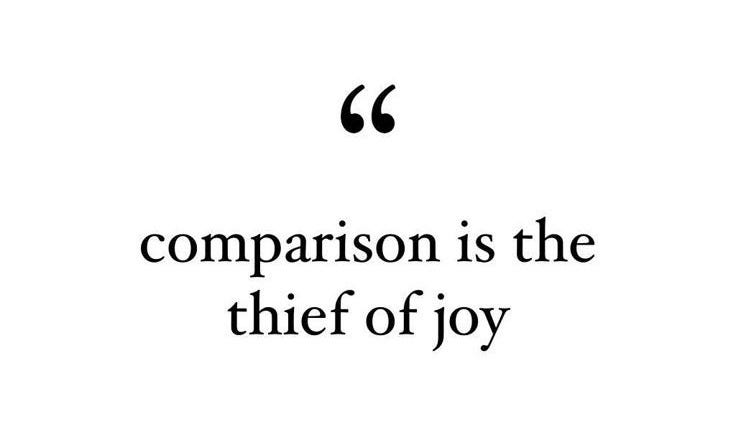stop comparing yourself to people who don't even exist offline
how social media trains us to envy people who aren’t even living their own lives
I’ve written a few essays recently about giving yourself permission to not care what people think. About the quiet thrill of not being for everyone. About choosing authenticity over approval.
These ideas have been with me for a long time; more like undercurrents than declarations. They weren’t some brave manifesto by any means. They were just truths I’d quietly learned the hard way and finally started to put into words.
But when I shared them publicly, the response caught me off guard. People weren’t just resonating—they were relieved. Like they’d been holding their breath, waiting for someone to say, “Hey… you can let go now.” And I realized something:
There are a lot of people quietly suffocating inside lives they’ve been performing for years.
And many of them are waiting for permission to stop.
the distortion machine—
We live in a time where even people below the poverty line can own smartphones and flat screen TVs, eat whole foods, and have access to infinite information. In many ways, life is easier, richer, and more connected than ever before.
But no one feels better.
Anxiety is rampant. Loneliness is peaking. Self-doubt is baked into our culture.
Why?
Because we’ve all been conditioned to compare our messy internal world to the curated, filtered, brand-safe highlight reels of everyone else. And when you’re stuck in a loop of comparison, even a beautiful life can feel like failure.
This is the distortion. This is the sickness. And it’s not benign.
my Instagram chapter (& why i quit)
During the pandemic, I grew an Instagram following to around 40,000. Not because I loved being online, but because I’d shut down my marketing agency and needed a way to make money. Content creation was the new game, and I knew how to play it.
But playing it drained something vital out of me.
At first, it felt like an outlet—an aesthetic little sandbox where I could share meals, outfits, travel, thoughts. But the more it grew, the more it became a job. A performance. A pressure.
I started planning content around what would “do well,” not what was honest. I found myself writing captions about joy on days I could barely get out of bed. I’d go to dinner and spend the whole time making sure I got a photo worth posting.
Eventually, I realized something dark: I wasn’t living my life anymore. I was documenting it.
Performing it.
Branding it.
And the worst part? I was good at it.
That was the real trap. Because being good at something hollow makes it even harder to walk away. It gives you just enough validation to override your instincts—even when your instincts won’t stop whispering underneath all the noise.
There's a specific psychological torture in succeeding at something that's slowly killing you. Your external world keeps telling you you're winning while your internal world is quietly collapsing. The engagement metrics go up as your engagement with your own life goes down. People congratulate you on your "brand" while you lose touch with who you actually are.
I became dangerously skilled at translating my inner life into content. Anxiety became "vulnerability." Depression became "authenticity." Every emotion was potential material. I stopped having experiences and started having posts.
The split-screen existence was the worst part. I'd wake up in a fog of dread, spend an hour crafting the perfect "good morning" story about gratitude and presence, then go back to bed feeling emptier than before. I was performing happiness while drowning in its absence, and getting praised for the performance.
Your competence becomes its own prison when it exceeds your commitment. The better I got at Instagram, the more I was rewarded for being someone I didn't recognize. The algorithm loved my content. Brands wanted to work with me. My follower count climbed steadily. But I felt like I was disappearing.
After about 18 months of nonstop content creation, I finally listened to those whispering instincts. I canceled all remaining brand deals, deactivated my account, and walked away from thousands of dollars per month. Just like that.
I allowed myself to disappear for a while.
rebuilding from silence—
At the end of 2021, I decided to take a sabbatical from social media.
No posts.
No updates.
No content.
I didn’t make an announcement. I didn’t write a goodbye letter. I just left—because real life doesn’t require an audience.
But I didn’t just go offline—I went inward.
During that year off social media, I read almost 250 books. At first, it was just something to fill the space, a way to quiet the withdrawal symptoms from the dopamine loops I’d unknowingly built. But over time, the books became something else entirely. They became a bridge back to myself. Not the self I performed. The self that existed underneath the performance. And she was quieter. Clearer. More deliberate. She didn’t crave attention. She craved alignment.
That alignment didn’t come from journaling or crystals or Pinterest quotes. It came from the absence of distortion. From finally hearing my own thoughts without background noise.
The silence taught me that most of what I thought was "me" had actually been me performing myself for an invisible audience. Strip away the performance, and what's left?
I started with books on physics and spirituality—concepts that felt opposite on the surface, but often pointed to the same fundamental truths. That the universe is interconnected. That time is slippery. That observation changes what is observed. That stillness is not the absence of motion, but a different kind of intelligence.
From there, I fell into ancient Greek philosophy. Seneca, Epictetus, Heraclitus. Men who lived thousands of years ago, writing about status anxiety and ego death and the strange ache of being alive in a world that keeps moving.
And what I found, buried in all of it, was relief.
the people you envy are probably miserable—
This part is going to sound harsh, but I’m going to say it anyway:
I don’t think most lifestyle influencers are happy.
In fact, I think many of them are quietly miserable.
They live on the edge of constant judgment. Every post has to be calculated. Every moment is potential content. Their private lives are mined for engagement. Their opinions are crowd-sourced. Their friendships are transactional. Their sense of self-worth is algorithmic.
It is not a life of freedom. It’s a very attractive cage.
I know because I lived in that cage. Behind the aspirational breakfast photos and mindfulness quotes, I was performing a version of contentment I couldn't actually access. I was teaching presence while being completely absent from my own life.
The cognitive dissonance was exhausting. You start to forget which version of yourself is real—the one online or the one sitting alone in your apartment at 2 AM, scrolling through comments and trying to figure out what to post tomorrow.
And yet, millions of people are measuring themselves against that. They’re looking at those curated lives and wondering why theirs doesn’t feel so polished, so stunning, so together.
But what if I told you that your messy, uncurated, unseen life is actually more real than anything you’re seeing online?
authenticity isn’t aesthetic—
I’ve always been allergic to inauthenticity. Even as a little girl, I remember feeling like I was crawling out of my skin in situations where I couldn’t just be myself.
I couldn’t lie. I couldn’t pretend. I couldn’t put on a show to make people like me.
I think some people are naturally wired for performance. They know how to shapeshift, how to charm, how to conform. I’ve never been that person.
So when I was posting curated images of my life online—writing captions about presence and gratitude while secretly feeling hollow—it wasn’t just exhausting. It was soul-eroding.
Some people can fake it. I couldn’t.
And I don’t think most people want to. I think they just don’t know how to stop.
permission to opt out—
So here’s what I want to offer:
You’re allowed to disappear.
You’re allowed to go quiet.
You’re allowed to stop performing.
But let's be honest about what this actually means. When I quit Instagram, I wasn't just opting out of social media—I was walking away from thousands of dollars a month, from a growing platform, from a version of success that looked legitimate from the outside. I was choosing economic uncertainty over spiritual suffocation.
That's not just about being authentic. That's about having the courage to sacrifice what others consider success for what you know to be right.
You’re allowed to live a beautiful, rich, private life that no one claps for.
You don’t have to prove your worth through aesthetics. You don’t have to be aspirational to be enough. You don’t have to be seen to be real.
If you go for walks, stay present in conversations, treat your life like it’s yours and not a product—you’re already ahead of most people.
And if no one has ever given you permission to just exist—here it is.
XO, STEPF















I used to love Instagram! It’s where I first found the courage to authentically express myself and write online. I built a community around my writing, and IG helped me have a successful first course launch.
But over the years, things changed. My engagement went down and I blamed myself because I outsourced my self-worth to the number of likes or comments. I started frantically wondering what would “do well” rather than what feels most true and authentic to write about.
I longed for the Instagram of old, and I was emotionally attached to what the platform used to be that it took years to see what it had become - and be honest about the toxic relationship I’d developed with it, and by extension, myself.
Everything snapped when a girl who followed me realized I thought differently than she did about an Important Social Issue. She went on a rampage and left me negative book reviews, defaming my character.
I was already on the verge of burnout, but something snapped, and I logged off for a few years to focus on my health.
I’ve done a lot of inner work to separate my sense of self worth from the amount of engagement I get, or even the sales I make.
I still post occasionally on Instagram, but it’s mostly repurposed things from my blog.
I do feel that writing and helping women identify their true soul gifts through an online business is my purpose, but I’ve realized the effort to maximize likes on social media actually detracts from that bc it waters down my true message.
It’s hard to see people going viral or building big audiences for their ideas when my growth sometimes seems to have stalled. It’s easy to think if I just rearranged my words in a certain way, then I’d get more likes.
But realizing purpose and releasing our true creative work requires a willingness to quiet the noise, get validation from within and stop performing for an algorithm - instead releasing the gifts that are actually inside of us.
It’s been a powerful personal growth opportunity. That book just to say - I really resonated with this post! Maybe I need to write my own :)
That stillness is not the absence of motion, but a different kind of intelligence. ... GIRL!